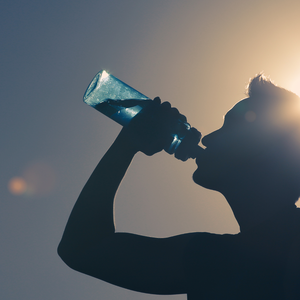As the summer sun blazes overhead, it’s essential to take precautions to stay safe and cool in the scorching heat. Whether you’re lounging at the beach, hiking a trail, or simply going about your daily activities, understanding how to beat the heat and recognize signs of heat-related illnesses can make all the difference in maintaining your well-being and enjoying the season to the fullest.
1. Hydration is Key
When the temperature rises, staying hydrated is paramount to keeping your body functioning optimally. Drink plenty of water throughout the day, even if you don’t feel thirsty. Avoid excessive consumption of sugary or alcoholic beverages, as they can contribute to dehydration. If you’re engaging in outdoor activities, carry a reusable water bottle and take regular sips to maintain hydration levels.
2. Replenishing Electrolytes
During hot weather, your body loses essential electrolytes through sweat. To replenish these vital minerals, consider consuming electrolyte-rich drinks or snacks. Coconut water, sports drinks, and certain fruits (e.g., bananas) are excellent sources of electrolytes that can help maintain the body’s fluid balance. If you find yourself feeling thirsty after drinking plenty of water, try adding in electrolytes. Your body needs them to absorb water properly.
3. Dress Wisely
Opt for lightweight, loose-fitting, and light-colored clothing to stay cool in the heat. Breathable fabrics such as cotton and moisture-wicking materials can help regulate body temperature by allowing air to circulate around your skin.
 4. Seek Shade and Stay Indoors
4. Seek Shade and Stay Indoors
During peak sun hours, typically between 10 am and 4 pm, the sun’s rays are the strongest and most dangerous. Whenever possible, seek shade or stay indoors during these hours, especially if you’re vulnerable to heat-related illnesses, such as young children, the elderly, or individuals with certain medical conditions.
5. Use Cooling Products
Take advantage of cooling products to beat the heat. Portable fans, cooling towels, and misting sprays can provide instant relief by lowering your body temperature. You’d be surprised at how well some of these work!
6. Limit Strenuous Activities
Engaging in intense physical activities during the hottest parts of the day can put significant stress on your body. If you must exercise or work outdoors, try to do so during the cooler morning or evening hours when the sun’s intensity is reduced.
Recognizing Signs of Heat Stroke
Heat stroke is a severe heat-related illness that requires immediate attention. Being able to identify the signs in yourself or others can be life-saving.
Signs of Heat Stroke in Adults
– Extremely high body temperature (above 103°F or 39.4°C)
– Rapid and strong pulse
– Throbbing headache
– Dizziness and confusion
– Nausea or vomiting
– Red, hot, and dry skin (no sweating)
– Loss of consciousness
Signs of Heat Stroke in Children
– Hot and red skin
– Rapid pulse
– Heavy sweating or lack of sweating
– Lethargy or irritability
– Nausea or vomiting
– Confusion or dizziness
– Fainting or loss of consciousness
 Signs of Heat Stroke in Pets
Signs of Heat Stroke in Pets
– Excessive panting
– Bright red tongue and gums
– Rapid heartbeat
– Dizziness or disorientation
– Excessive drooling
– Weakness or collapse
If you suspect someone is experiencing heat stroke, it’s crucial to seek immediate medical attention. While waiting for help to arrive, move the individual to a cooler area, remove excess clothing, and apply cool, damp cloths to their body.
Preventing Heat-Related Illnesses in Pets
Our furry companions are also susceptible to heat-related issues. To keep your pets safe during hot days:
– Provide plenty of fresh water
– Ensure they have access to shade
– Never leave pets in parked vehicles, even with the windows cracked
– Walk dogs during cooler hours and avoid hot asphalt surfaces that can burn their paws
With proper precautions, you can enjoy the summer season while staying safe and cool. Prioritize hydration, seek shade when needed, and pay attention to signs of heat-related illnesses in yourself, others, and pets. By staying informed and prepared, you can beat the heat and make the most of the sunny days ahead.


